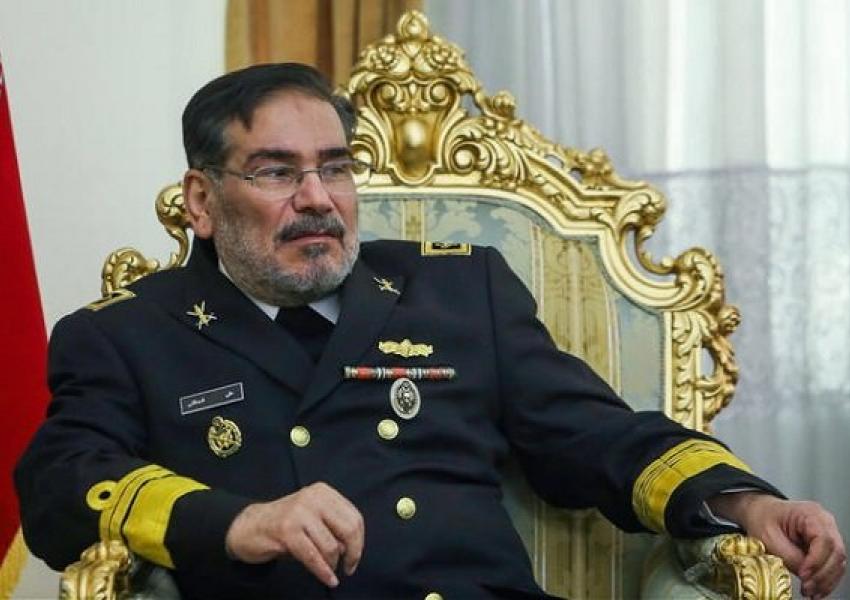
Visiting Taliban Delegation And Top Iran Official Lambast US Policy
The Secretary of Iran’s Supreme National Security Council, Admiral Ali Shamkhani Wednesday told a visiting high-level Afghan Taliban delegation that “America does not pursue peace and security in Afghanistan.”
The Afghan delegation headed by Mullah Abdul Ghani Baradar arrived in Tehran on Monday and is meeting with high level Iranian officials in what the foreign ministry said is consultation to promote peace in war-torn Afghanistan.
Shamkhani told the delegation that US strategy is “the continuation of war and bloodshed among various groups in Afghanistan” and added that Washington pretends to be negotiating over peace while its real goal is to create deadlock in intra-Afghan talks and to show that Afghans are responsible for insecurity and instability.
The former US administration engaged in long and drawn-out negotiations with the Taliban with the aim of military disengagement after nearly two decades of US involvement in Afghanistan that culminated in an agreement last year.
The Biden administration has said it will review the February 2020 deal signed by the US with the Taliban, excluding the Afghan government, in Qatar. Under the deal, the US agreed to troop withdrawals in return for the Taliban giving security guarantees, eschewing links to al-Qaeda, and committing to kickstart talks with the Afghan government.
Meanwhile, violence and terror attacks have continued in the country amid uncertainty over who among the Taliban is involved and the role of the Islamic State group.
In the meeting today, Mullah Baradar “offered a report about the peace process”, local media reported, and referring to former US Donald Trump “breaking promises” in implementing the agreement, he said, “We do not trust America and we will fight any force which is a US mercenary.”
With the reduction of US forces in Afghanistan from 13,000 to 2,500 in 2020 and the transition to a new administration in Washington, Iran has been playing a greater role in Afghan affairs, trying to present itself as the ultimate deal maker between ethnic and political factions in the deeply divided country.
Shamkahni told the Taliban delegation that Iran will not recognize the domination of any one group through war and emphasized the necessity of participation by all ethnic and religious groups in deciding the fate of the country. He also emphasized the importance of keeping the Iran-Afghan border areas secure.
Although the Taliban are a convenient tactical ally against the United States, Shiite Iran has had its tensions with the Sunni militant group in the past. Iran’s best bet is to position itself as the powerbroker in Afghanistan to try to eliminate US influence.
In August, CNN reported US intelligence agencies had assessed that Iran had offered bounties to Taliban fighters for targeting American and coalition troops in Afghanistan. The agencies had also identified payments linked to at least six attacks carried out by the Taliban in 2019 including a suicide bombing at a US air base in December, the report said. Iran denied the allegations.
CNN also quoted a senior Trump administration that Iranian links to the Taliban were part of the justification for the strike that killed Qasem Soleimani, commander of Iran’s extraterritorial Qods Force, on January 3, 2020.








